In Person Learning
The University of Toronto delivers academic programs through an in-person learning environment. All students should therefore plan to attend on-campus activities in-person in order to successfully complete their program/ degree unless: (i) students have been approved by the University to participate in off-campus activities (such as study abroad or work terms), or (ii) the calendar entry for a program/degree explicitly states that no in-person activities are required. While the University strives to maintain an in-person learning environment, the University reserves the right to alter the manner in which it delivers its courses and co-curricular opportunities in response to health and safety emergencies and public health guidance.

Updates and Changes to the Calendar
June 21, 2024
Course Mode of Delivery
KPE320H1 - Administrative Theory and Organizational Behaviour (Category B) is being offered as an in-person course during 2024 - 25 academic year as listed on the Academic Timetable.
July 4, 2024
Course Description updated for Special Topics Courses
KPE416H1 - Special Topics in Kinesiology: 'Dance Cultures and Practices'
Dance is unique in kinesiology as it is both a form of physical activity as well as an art, for this reason, dance presents an interesting physical space of movement, and societal and cultural dimensions. Dance Cultures and Practices explores dance culture and dance practices as it relates to various physical cultural topics including community, identity, race, gender, sexuality, decolonization, disability, the environment, dance and movement therapy, popular media, and harmful practices in dance. The course will utilize theoretical sociological and psychological frameworks to deepen students' understanding of these complex issues. Through a combination of lectures and interactive discussions, students will develop a holistic perspective on how dance operates as both an art form and a social practice. They will learn to critically analyze how dance can reinforce or challenge societal norms, produce cultural meaning, and facilitate personal and collective expression.
Pre-Requisites: KPE200H1
Co-Requisites: None
Category: Physical Cultural (A)
Delivery: In-person
KPE417H1 - Special Topics in Kinesiology: 'Sport and Physical culture in the Global South'
The Global South is commonly invoked in public discourse on politics and culture. It is a term that often comes up in Physical Cultural Studies course materials as well. However, the use of Global South is sometimes confusing as it is understood to be a geographical entity, or as a synonym for the Southern Hemisphere. This course will encourage students to move beyond such assumptions and to develop theoretical clarity about the Global South as an analytic category. The lectures will be split into three modules: 1) The themes and concepts that explain the Global South (weeks 1-3); 2) The foregrounding of a Global South perspective for the study of professional sport and competitions (weeks 4-7); 3) Local games and physical cultures in the Global South, with a special focus on marginalised groups (weeks 8-11). Students will read, primary and secondary research to attain a refined understanding of perspectives from the Global South.
Pre-Requisites: KPE200H1
Co-Requisites: None
Category: Physical Cultural (A)
Delivery: In-person
KPE438H1 - Special Topics in Kinesiology: 'Psychology of body Image'
This course will discuss psychological theories and applications of body image within the context of exercise, sport, and physical education. Topics include body image conceptualization, psychosocial development, assessment, intervention, psychopathology, individual differences, and positive embodiment. The role of body image in the context of movement will be a particular focus. Implications for exercise training and testing and athletics will be considered. Upon completion of this course, students will be able to identify appropriate strategies to improve body image more generally, as well as within exercise, sport, fitness, and movement settings for a variety of populations.
Pre-Requisites: KPE220H1, KPE290H1/KPE391H1, KPE291H1
Co-Requisites: None
Category: Behavioural (B)
Delivery: In-person
KPE478H1 - Special Topics in Kinesiology: 'Concussion in Sport'
This course will explore various aspects of concussion research to determine how clinical practices have evolved with the assistance of science and research. Students will learn and gain an understanding of the definition of concussion, causes of and physiological effects of a concussive injury, and the evaluation, diagnosis, prevention, and education of concussion. Additionally, treatment strategies, management of recovery, return-to-learn and return-to-sport protocols, risks, and residual effects of concussion will be taught. Lectures will also provide students with the opportunity to gain a hands-on experience by learning the administration of tests, tools, and measures currently used in concussion assessment. Students will collect data from each test/measure/tool and relate these findings to current literature.
Pre-Requisites: ANA124H1/ANA125H1/ANA126Y & KPE260H1
Co-Requisites: N/A
Category: Biophysical (C)
Delivery: In-person
July 8, 2024
KPE433H1 - Occupational Wellness and Fitness
Most individuals and organizations who work with occupational athletes such as fire fighters, police officers and soldiers have similar goals – improve worker wellness and fitness and minimize the economic impact of injuries and chronic disease. However, the success of any wellness and fitness initiative designed for this population will depend largely on the extent to which the associated program(s) have influenced workers’ choices, actions and behaviours. This course will explore the 5 critical components of the occupational wellness-fitness framework (define, pursue, support, restore and promote wellness) by discussing various standards, best-practice guidelines and practical strategies being used to improve occupational wellness and fitness. Case examples will be used throughout to illustrate possible obstacles and facilitators to implementing a wellness and fitness program for occupational athletes.
Category: Behavioural (B)
Pre-Requisites: KPE220H1, KPE263H1, KPE264H1
Co-Requisites: None
Exclusion: None
Mode of Delivery: In Person
